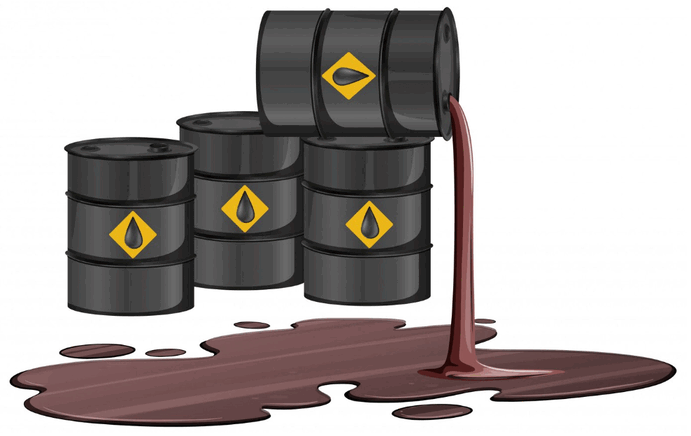 Import News
Import News
 11-10-2023
11-10-2023
Singapore, a global trade and financial hub, has established itself as a key player in international trade. Known for its strategic location and business-friendly environment, the city-state relies heavily on imports to fuel its economy and meet the needs of its diverse population. This article delves into the main products that Singapore imports, shedding light on its trade dynamics and the reasons behind its import choices.
>>>Increase Company Revenue with Tendata<<<

1. Oil and Petroleum Products
One of the most critical imports for Singapore is oil and petroleum products. As an island nation with limited natural resources, Singapore is highly dependent on these imports to fuel its industries, transportation, and households. It serves as a vital refining and transshipment center for the Asia-Pacific region. Crude oil and its derivatives, including gasoline, diesel, and jet fuel, top the list of Singapore's imports. The country's significant role in the oil trade contributes substantially to its economic growth.
2. Electronic Components and Devices
Singapore's electronics industry is a powerhouse, and it heavily relies on the import of electronic components and devices. The city-state is home to numerous electronics manufacturers, including semiconductor giants. To maintain its position as a global electronics manufacturing hub, Singapore imports a wide range of electronic parts, integrated circuits, and consumer electronics. These imports form the backbone of its vibrant electronics sector.
3. Machinery and Equipment
The machinery and equipment sector plays a crucial role in Singapore's economic landscape. The country imports a variety of industrial machinery, including manufacturing equipment, engines, and machinery parts. These imports are essential to sustain its manufacturing capabilities, which span industries such as aerospace, biomedical sciences, and precision engineering.
4. Chemicals and Pharmaceuticals
Singapore has developed a strong chemicals and pharmaceutical industry, and it imports various chemicals and pharmaceutical products to support this sector. The import of raw materials for pharmaceutical manufacturing, as well as specialty chemicals for diverse industrial applications, is integral to Singapore's economy. The chemicals industry is one of the key contributors to the country's GDP.
>>>Increase Company Revenue by Import Data<<<
5. Agricultural Products and Foodstuffs
Despite its urbanized landscape, Singapore imports a substantial quantity of agricultural products and foodstuffs to feed its population. This includes fresh produce, meat, dairy products, and a wide array of processed foods. Given its limited agricultural land, Singapore relies on imports to ensure a consistent food supply. The country's commitment to food safety and quality control is reflected in the stringent regulations governing these imports.
6. Mineral Fuels and Ores
Apart from oil, Singapore imports mineral fuels and ores, such as coal, to support its energy and metallurgical industries. While the country doesn't have substantial natural resources in this regard, it has developed a strong trading and logistics infrastructure to facilitate these imports.
7. Consumer Goods
The import of consumer goods, including clothing, electronics, and household items, caters to the domestic market's needs. Singapore's retail industry thrives on a diverse range of imported consumer products, many of which are available in shopping malls and local markets.
8. Transportation Equipment
Singapore imports various forms of transportation equipment, including automobiles, aircraft, and parts to maintain its advanced transportation networks. The country's status as a major transport and logistics hub is supported by these imports.
9. Metals and Metal Products
Metals and metal products, such as iron, steel, and aluminum, are critical imports that support construction, manufacturing, and various industries in Singapore.
10. Plastics and Rubber
Singapore imports plastics and rubber products that are utilized in manufacturing, packaging, and other industrial applications. The country has a well-established plastics industry that relies on these imports.
In conclusion, Singapore's diverse and dynamic economy depends on a wide range of imports. The city-state's strategic approach to trade and its focus on value-added industries have made it a global trading and manufacturing hub. By understanding the main products that Singapore imports, one can gain insight into the factors driving its economy and international trade.
>>>Click to Get Free Access to Customs Data from 80+ Countries<<<
Obtain Customs Data from 80+ Countries to Find Suitable Buyers
Tendata Customs Database provides real-time access to customs data from over 80 countries, 42 countries along the Europe-Asia route, 10+ billion real-time trade data, and a database of 130 million importers and exporters. This assists you in understanding global market trade trends and distribution, allowing you to quickly, accurately, and scientifically target hot-selling countries and emerging markets for your products. >>>Inquire Online

Tendata Customs Data Platform offers nearly 20 types of market analysis reports (>>>Click to Use Data Analytics for Free Online) that can be customized and analyzed in a multi-dimensional, visual manner. This enables you to effortlessly identify your peers' primary export markets and buyers. Through analyzing transaction quantities, prices, and supply chains of target buyers, as well as examining bill of lading details of successful buyers and competitor information, various data analysis reports are intelligently generated to highlight your competitive advantages, aiding you in capturing a larger market share.
Category
Leave Message for Demo Request or Questions


 T-info
T-info T-discovery
T-discovery

 My
Tendata
My
Tendata Market Analysis
Market Analysis Customer
Development
Customer
Development Competitor
Monitoring
Competitor
Monitoring Customer Relationship
Customer Relationship





































































































































